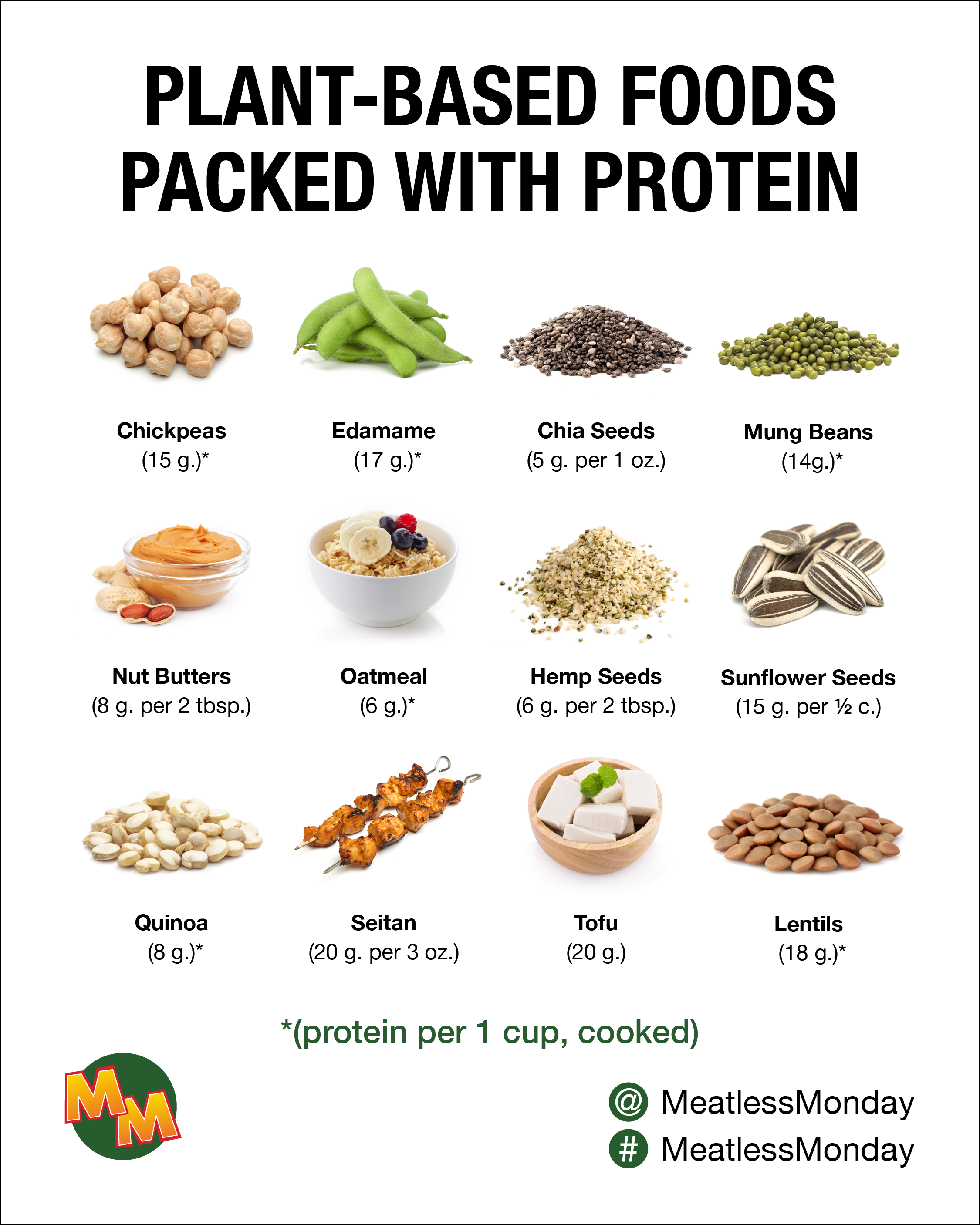Mouthwatering BBQ Sauces That Pair Perfectly with Vegan Proteins
Mouthwatering BBQ Sauces That Pair Perfectly with Vegan Proteins
Blog Article
Everything About Healthy Food: Benefits of Embracing Plant Based Options
The discussion surrounding plant-based diet plans has actually obtained significant interest recently. Numerous individuals are discovering the potential wellness benefits, nutritional advantages, and environmental influences connected with these dietary selections. As individuals end up being a lot more knowledgeable about their food's impact on health and sustainability, inquiries emerge regarding the functionalities of adopting such a way of life. What specific changes can one anticipate, and exactly how might these choices reshape not only individual wellness but likewise the earth's future?
Understanding Plant-Based Diets
Although many individuals link plant-based diets generally with vegetarianism or veganism, these diets can include a large range of eating patterns that focus on whole, minimally processed plant foods. Such diet plans typically consist of fruits, vegetables, whole grains, beans, seeds, and nuts, while limiting or eliminating animal products. This adaptability permits individuals to customize their dietary selections according to individual choices and nutritional requirements. Some might embrace a largely plant-based diet while still sometimes consuming meat or dairy, usually described as a flexitarian method. The focus stays on integrating more plant foods, which can result in a varied array of flavors and dishes. Understanding these various interpretations of plant-based consuming is crucial for valuing its ease of access and allure in modern food society.
Health And Wellness Benefits of Plant-Based Foods
The wellness advantages of plant-based foods are considerable, supplying a nutrient density benefit that sustains general health. Research suggests that these foods can enhance heart health and play a vital duty in efficient weight administration. By incorporating extra plant-based alternatives, individuals might enhance their nutritional choices and advertise lasting health.
Nutrient Density Advantage
Nutrient density plays a necessary role in the health and wellness advantages of plant-based foods, making them a compelling selection for those looking for a well balanced diet plan. Plant-based foods, such as fruits, veggies, beans, nuts, and whole grains, are frequently abundant in important vitamins, minerals, and antioxidants while being lower in calories. This high nutrient density permits people to take in fewer calories while still fulfilling their nutritional requirements. In addition, these foods are packed with dietary fiber, promoting digestion health and assisting in weight monitoring. By incorporating nutrient-dense plant-based options, customers can improve their total health and wellness, support their immune systems, and minimize the threat of persistent diseases. Inevitably, the nutrient thickness of plant-based foods underscores their significance in a health-conscious way of living.
Heart Wellness Enhancement

Weight Management Assistance
Along with advertising heart health, a plant-based diet regimen can significantly aid in weight management. This nutritional approach stresses whole foods such as fruits, veggies, legumes, nuts, and entire grains, which are typically reduced in calories and higher in fiber compared to animal-based products. The high fiber content assists raise satiation, minimizing overall calorie consumption. Additionally, plant-based diets are often abundant in essential nutrients while low in harmful fats, making it simpler to keep a healthy weight. BBQ Sauces. Research study shows that individuals who embrace a plant-based way of living tend to have lower body mass indexes (BMIs) and experience even more effective weight-loss contrasted to those that consume meat-heavy diets. As a result, embracing plant-based options is a calculated choice for efficient weight monitoring
Nutritional Worth of Plant-Based Active Ingredients
Plant-based active ingredients are rich in important nutrients, providing a diverse variety of vitamins, minerals, and anti-oxidants that add to overall health. A comparison of protein sources exposes that while animal products are typically considered as premium, several plant-based alternatives provide adequate healthy protein and various other beneficial substances. Recognizing the dietary value of these active ingredients can help people make educated nutritional options.
Necessary Nutrients in Plants
Nutrient-rich components discovered in plants provide a diverse array of important vitamins and minerals that contribute greatly to total health and wellness. These components are rich in vitamins A, C, and K, which support immune feature, vision, and blood clotting, respectively. On top of that, plants give crucial minerals such as calcium, potassium, and magnesium, vital for heart health and wellness, muscle feature, and bone stamina. The presence of fiber in plant-based foods aids food digestion and promotes a healthy intestine microbiome. Antioxidants, located generously in vegetables and fruits, help fight oxidative stress and anxiety and reduce swelling. Furthermore, several plant foods are low in calories yet high in nutrients, making them an exceptional choice for those seeking to keep a healthy weight while making sure perfect nutrient consumption.
Comparing Protein Resources
Healthy protein resources vary considerably in their nutritional accounts, with plant-based components providing distinct advantages. Unlike pet proteins, which typically have saturated fats and cholesterol, plant proteins tend to be reduced in these harmful parts. Legumes, nuts, seeds, and whole grains are abundant in necessary amino acids, fiber, vitamins, and minerals. Lentils supply high protein web content together with significant iron and folate, while quinoa is a total protein, supplying all nine essential amino acids. Furthermore, plant-based proteins are usually gone along with by anti-oxidants and phytochemicals that support total health and wellness. The change to plant-based protein resources not only boosts nutritional consumption but additionally aligns with lasting dietary methods, reducing ecological influence and promoting lasting health advantages.
Ecological Effect of Plant-Based Eating
As recognition of climate modification expands, numerous people are exploring sustainable nutritional choices that can considerably decrease their environmental impact. Plant-based consuming has become a substantial factor to decreasing greenhouse gas discharges, which are largely associated with animals manufacturing. The cultivation of fruits, veggies, beans, and grains usually calls for less resources, such as water and land, compared to animal farming. Furthermore, plant-based diet regimens can bring about decreased deforestation, as less land is needed for grazing livestock or growing animal feed. By moving in the direction of plant-based alternatives, customers can support biodiversity and promote healthier ecological communities. Overall, embracing plant-based eating not only benefits personal health but also represents a vital step toward environmental sustainability and conservation initiatives.
Conquering Common Misconceptions
While several people identify the advantages of a plant-based diet regimen, numerous false impressions often deter them from totally welcoming this way of living. An usual belief is that plant-based diet plans lack enough healthy protein; nonetheless, many plant sources, such as legumes, nuts, and tofu, provide ample healthy browse around this site protein. Furthermore, some presume that this diet is expensive, when as a matter of fact, staples like beans, rice, and seasonal veggies can be rather budget-friendly. One more misconception is that plant-based consuming is excessively restrictive, whereas it in fact uses a varied selection of foods and tastes. Ultimately, many worry that a plant-based diet plan may lead to shortages, yet with correct planning, people can acquire all essential nutrients, including vitamins and minerals, while delighting in a wide range of scrumptious meals.
Tips for Transitioning to a Plant-Based Lifestyle
Making the change to a plant-based lifestyle can be an enhancing experience, though it often needs some guidance to navigate the first modifications. Initially, individuals are motivated to begin slowly, including more fruits, vegetables, beans, and whole grains into their dishes while lowering meat and dairy products intake. Meal preparation is crucial; preparing a weekly menu can assist reduce the change and avoid final harmful selections. Exploring cooking methods and brand-new dishes can also improve the experience and preserve exhilaration concerning plant-based consuming. Additionally, joining support system or neighborhoods can offer inspiration and share useful tips. Staying informed concerning nourishment warranties well balanced meals, stopping deficiencies while fostering a healthy, satisfying plant-based way of living.

Delicious Plant-Based Meal Ideas
Discovering delicious plant-based meal concepts can motivate individuals to accept an extra nutritious diet plan. One preferred option is a hearty quinoa salad, featuring cherry tomatoes, cucumber, and a vibrant lemon-tahini dressing. Another favorite is a full-flavored lentil stew, packed with carrots, celery, and fragrant herbs, best for a comforting dinner. For breakfast, overnight oats made with almond milk, chia seeds, and covered with fresh berries give a nourishing beginning to the day. Click This Link Additionally, a dynamic veggie stir-fry with tofu and a selection of vivid veggies can be a fast yet satisfying meal. Finally, velvety avocado salute on whole-grain bread, sprayed with flavors and seeds, uses an easy yet delicious treat. These meals showcase the variety and splendor of plant-based eating.

Regularly Asked Questions
Can a Plant-Based Diet Plan Provide Enough Healthy Protein?
The inquiry of whether a plant-based diet can give adequate protein is usual. Various resources, including legumes, nuts, seeds, and entire grains, can meet healthy protein needs properly, supporting a well balanced and healthy diet regimen for individuals.
Are Plant-Based Diets Ideal for Children?
The viability of plant-based diets for youngsters depends on mindful planning. Appropriate nutrients must be ensured, consisting of vitamins, minerals, and healthy proteins. With appropriate advice, such diet plans can sustain healthy growth and growth in children.
How Do I Eat in restaurants on a Plant-Based Diet regimen?
Eating in restaurants on a plant-based diet plan entails seeking restaurants with varied food selections, asking for adjustments, and discovering vegan-friendly options. Planning ahead and connecting nutritional preferences can enhance the dining experience while preserving nutritional selections.
What Prevail Irritants in Plant-Based Foods?
Typical allergens in plant-based foods consist of soy, gluten, nuts, and seeds - Gluten Free BBQ Sauce. People complying with a plant-based diet regimen should be conscious of these irritants and review labels very carefully to prevent damaging responses and guarantee safe consumption
Can Plant-Based Diets Assist With Fat Burning?
Study shows that adopting a plant-based diet may facilitate weight reduction because of its normally reduced calorie thickness and higher fiber material. This combination can enhance satiety, helping individuals handle their calorie consumption successfully. Lots of individuals connect plant-based diet plans primarily with vegetarianism or veganism, these diets can encompass a wide array of consuming patterns that focus on whole, minimally processed plant foods. Nutrient thickness plays an essential duty in the wellness advantages of plant-based foods, making them a compelling choice for those looking for a well balanced diet plan. Plant-based diets have actually been revealed to noticeably enhance heart health, as they frequently contain article components that support cardiovascular function. In addition to advertising heart health and wellness, a plant-based diet can substantially help in weight management. An usual idea is that plant-based diets do not have adequate protein; nonetheless, various plant sources, such as vegetables, nuts, and tofu, offer enough healthy protein.
Report this page